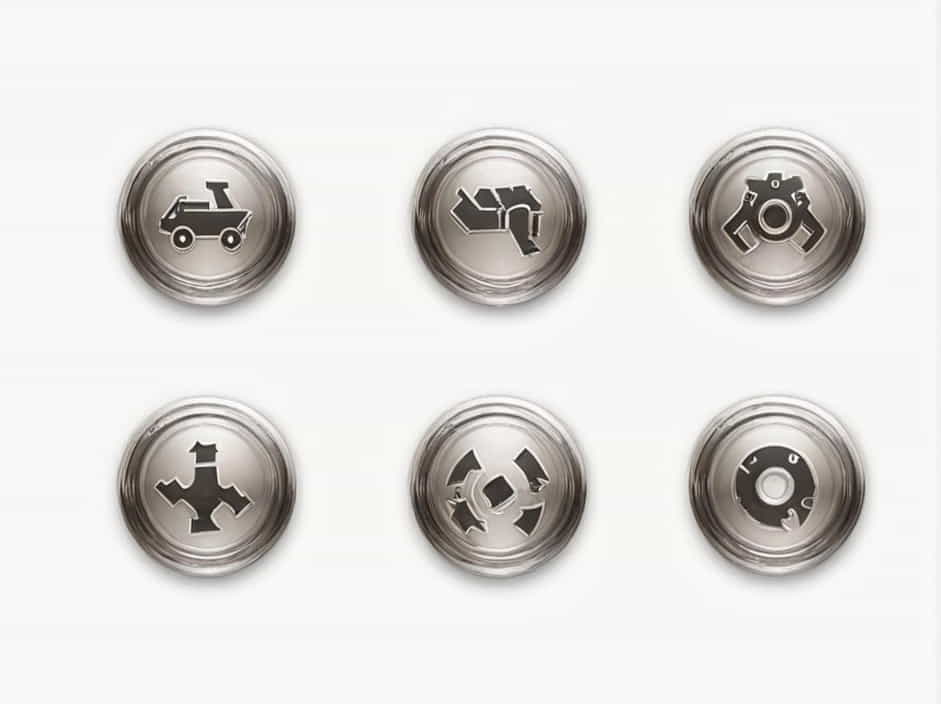Scrapping metal is a great way to recycle old materials, reduce waste, and even earn extra cash. If you’re wondering where to scrap metal near me, this guide will help you locate the best places, understand what types of metal you can recycle, and maximize your earnings.
Why Scrap Metal Recycling is Important
Recycling scrap metal offers multiple benefits for individuals, businesses, and the environment.
-
Environmental Benefits: Reduces landfill waste, lowers pollution, and conserves natural resources.
-
Economic Advantages: Helps industries save on material costs and provides a source of income for individuals.
-
Energy Efficiency: Uses less energy compared to mining and processing new metal.
How to Find Scrap Metal Recycling Centers Near Me
If you’re looking for the nearest place to recycle scrap metal, consider these options:
1. Google Search and Online Directories
A simple search for ‘scrap metal near me’ on Google or mapping services will show the nearest recycling facilities. Websites like Yelp and Yellow Pages offer customer reviews to help you choose the best one.
2. Local Scrap Yards and Recycling Centers
Many cities have designated scrap yards that accept different types of metals. Some even offer pickup services for large loads.
3. Municipal Waste Management Services
Check with your city or county’s waste management department to see if they offer scrap metal recycling programs.
4. Industrial and Commercial Recycling Facilities
Businesses dealing with large amounts of metal, such as construction companies, often partner with industrial scrap buyers who may also accept individual sellers.
5. Auto Salvage Yards
If you have an old car, truck, or motorcycle, auto salvage yards are a great place to scrap metal. They often buy vehicles for their metal content.
Types of Metal You Can Scrap
Most recycling centers accept ferrous and non-ferrous metals. Knowing the difference helps in sorting and getting the best price.
Ferrous Metals (Contain Iron)
-
Steel: Found in cars, appliances, and construction materials.
-
Cast Iron: Used in old pipes, radiators, and bathtubs.
-
Wrought Iron: Common in fences, railings, and gates.
Non-Ferrous Metals (More Valuable)
-
Aluminum: Found in soda cans, car parts, and window frames.
-
Copper: Used in wiring, plumbing, and roofing materials.
-
Brass: Common in door handles, plumbing fixtures, and musical instruments.
-
Bronze: Found in coins, statues, and industrial parts.
-
Lead: Used in batteries, roofing, and old pipes.
How to Prepare Metal for Scrapping
To get the best value when scrapping metal, follow these preparation steps:
1. Sort Metals by Type
Separate ferrous and non-ferrous metals. Non-ferrous metals like copper and aluminum fetch higher prices. A magnet can help-ferrous metals stick to it, while non-ferrous metals don’t.
2. Clean the Metal
Removing dirt, grease, and other contaminants increases the price scrap yards will pay.
3. Remove Non-Metal Components
If your metal items contain plastic, rubber, or other materials, removing them can help you get a better price.
4. Bundle Small Pieces Together
If you have small metal pieces, bundling them makes it easier to transport and weigh.
Where to Scrap Specific Items
Certain items require specialized recycling centers. Here are some common metal items and where to scrap them:
1. Cars and Auto Parts
-
Auto salvage yards
-
Junk car buyers
-
Scrap yards that accept vehicles
2. Appliances
-
Local scrap yards
-
Appliance recycling centers
-
Waste management services
3. Construction Materials
-
Demolition recycling centers
-
Scrap metal yards
-
Industrial recyclers
4. Electronics (E-Waste)
-
Specialized e-waste recyclers
-
Electronic stores with recycling programs
5. Household Items
-
General scrap yards
-
Local recycling facilities
How to Get the Best Price for Scrap Metal
If you want to make the most money when scrapping metal, keep these tips in mind:
1. Check Scrap Metal Prices Regularly
Metal prices fluctuate daily based on market demand. Checking prices before selling ensures you get the best deal.
2. Sell in Bulk
The more metal you have, the better your chances of negotiating a higher price.
3. Separate Valuable Metals
Sorting high-value metals like copper and brass from common metals like steel ensures you get top dollar.
4. Build Relationships with Scrap Yards
Regular sellers may receive better rates or priority service at certain scrap yards.
Environmental Benefits of Scrapping Metal
Choosing to recycle metal helps in several ways:
-
Reduces Landfill Waste: Prevents metal items from taking up space in landfills.
-
Conserves Resources: Reduces the need for mining and processing new metals.
-
Lowers Carbon Emissions: Metal recycling emits fewer greenhouse gases than producing new metal.
Frequently Asked Questions
1. Can I Scrap Rusty Metal?
Yes, but rusted metal may have a lower value than clean metal.
2. Do I Need to Remove Screws or Bolts?
Not necessarily, but removing them may increase the price you receive.
3. What’s the Most Valuable Scrap Metal?
Copper, brass, and aluminum tend to be the highest-paying scrap metals.
4. Can I Scrap Old Household Items?
Yes, items like metal furniture, kitchenware, and bed frames can be scrapped.
5. Do Scrap Yards Pay in Cash?
Some do, while others issue checks or direct deposits. Call ahead to confirm.
Finding where to scrap metal near me is simple with online searches, local scrap yards, and municipal recycling programs. By sorting, cleaning, and selling metal wisely, you can maximize earnings while helping the environment. Whether you’re recycling old appliances, scrapping an old car, or collecting aluminum cans, metal recycling is a smart and sustainable choice.
